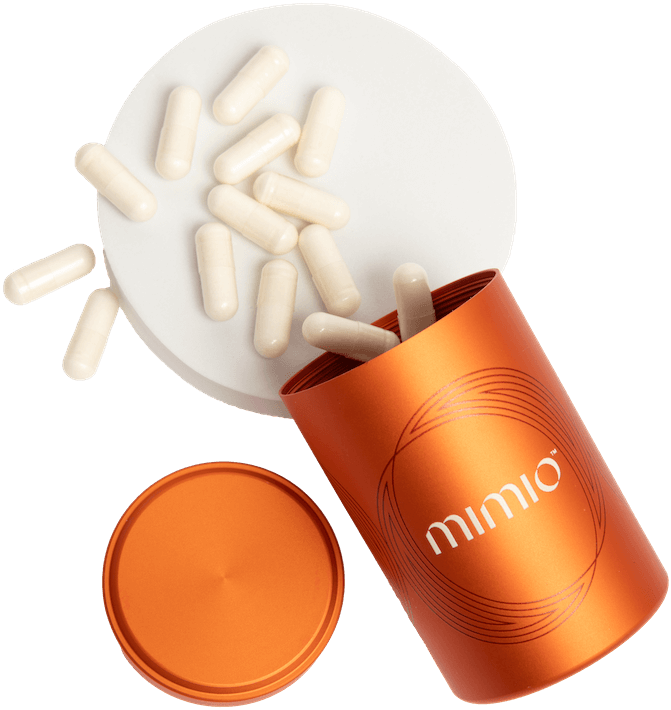Eating for Longevity: The Ultimate Diet for a Longer, Healthier Life
Aging is inevitable. But how we age? That’s something we can influence. Science shows that what we eat plays a major role in how long—and how well—we live. Enter the longevity diet, a way of eating designed to support a longer, healthier life by optimizing metabolism, reducing inflammation, and promoting cellular repair.
So, what exactly is the longevity diet, and how can you use it to support your health? Let’s break it down.
The Science Behind Longevity and Diet
The connection between diet and lifespan isn’t just hype—it’s backed by decades of research. Scientists studying Blue Zones (regions where people live the longest) have identified key dietary patterns linked to longevity. Meanwhile, research in fasting and caloric restriction shows that specific dietary strategies can slow aging at a cellular level.
Here’s what we know:
-
Chronic inflammation and oxidative stress speed up aging.
-
Certain foods can activate cellular repair pathways, helping the body clear out damaged cells and regenerate new ones.
-
Fasting-mimicking diets and supplements, in addition to nutrient timing can extend lifespan by improving metabolic health.
-
A longevity-focused diet isn’t just about what you eat—it’s also about when you eat.
The Core Principles of the Longevity Diet
While there’s no one-size-fits-all approach, longevity-focused eating patterns share some key principles.
1. Prioritize Plant-Based Foods
The longest-living populations rely heavily on plant-based whole foods. That means:
-
Plenty of vegetables and leafy greens – Rich in antioxidants, fiber, and polyphenols which combat aging.
-
Legumes (beans, lentils, chickpeas) – A staple in nearly every longevity hotspot, packed with protein and fiber.
-
Healthy fats (nuts, seeds, olive oil) – Monounsaturated and omega-3 fats reduce inflammation and support brain health.
2. Reduce Processed Foods and Sugar
Highly processed foods and refined sugars contribute to inflammation, insulin resistance, and metabolic dysfunction—all things you want to avoid if longevity is the goal. Instead, go for:
-
Choose whole grains over refined carbs
-
Natural sources of sweetness like berries or dark chocolate (in moderation)
-
Healthy snacks like nuts instead of ultra-processed options
3. Emphasize Protein Quality
Protein is essential for maintaining muscle mass and metabolic health, but protein quality matters:
-
Prioritize plant-based proteins like lentils, beans, and tofu.
-
Include high-quality animal proteins (in moderation), such as wild-caught fish and pasture-raised eggs.
-
Minimize processed meats and excessive red meat consumption.
4. Practice Smart Fasting or Time-Restricted Eating
Intermittent fasting and fasting-mimicking diets (FMD) have been linked to increased longevity by enhancing autophagy (the body’s natural cell-cleaning process) and reducing age-related diseases.
How to incorporate fasting for longevity:
-
12- to 16-hour fasting windows can help improve insulin sensitivity and metabolic flexibility.
-
Occasional fasting-mimicking diets (low-calorie, nutrient-dense eating for 3-5 days) may activate cellular repair processes.
-
Avoid late-night eating, as it can disrupt circadian rhythms and metabolic health.
5. Hydrate With More Than Just Water
Hydration goes beyond just drinking enough water. What you drink matters:
-
Green tea and herbal teas – Loaded with polyphenols that support cellular health.
-
Black coffee (in moderation) – Linked to longevity and cognitive benefits.
-
Bone broth – Provides collagen and essential minerals for gut and joint health.
6. Supplement Smartly
Even the best diet may have nutritional gaps. Supplements that support cellular health and longevity include:
-
Omega-3 fatty acids – Reduce inflammation and support brain function.
-
Vitamin D + K2 – Essential for bone health and immune function.
-
Polyphenol-rich compounds – Found in longevity-promoting supplements like Mimio Biomimetic Cell Care, which mimic the benefits of fasting and activate the body's natural repair mechanisms.
What a Longevity Diet Looks Like in Practice
Putting it all together, here’s what a typical day on a longevity-focused diet might look like:
Morning:
-
Black coffee or green tea
-
A fiber-rich smoothie with berries, flaxseeds, and plant-based protein
Lunch:
-
A large salad with mixed greens, chickpeas, olive oil, and avocado
-
A side of quinoa or whole grains
Snack:
-
Handful of almonds or walnuts
-
Herbal tea
Dinner:
-
Grilled wild salmon with roasted vegetables
-
Lentil soup with a side of fermented veggies (kimchi or sauerkraut)
Fasting Window:
-
Stop eating 2-3 hours before bed
-
Hydrate with herbal teas or water
Longevity Diet Myths (And What the Science Really Says)
1. "You Have to Be 100% Vegan to Live Longer". FALSE
While plant-based diets are linked to longevity, research shows that some animal proteins, like fish and eggs, can be part of a longevity-supporting diet when consumed in moderation.
2. "Caloric Restriction is the Only Way to Extend Lifespan". FALSE
You don’t have to starve to age well. It’s more about nutrient timing and metabolic flexibility—giving your body periods of fasting and nutrient-dense eating.
3. "More Protein = Better Longevity". FALSE
As we age, protein is essential for muscle maintenance, but too much protein (especially from animal sources) may activate mTOR, a pathway linked to accelerated aging. The key is balance—moderate, high-quality protein intake.
It’s About More Than Just Food
Diet and food intake are powerful longevity tools, but they’re only one piece of the puzzle. Other factors that contribute to a longer, healthier life include:
-
Regular movement – Strength training, walking, and mobility exercises.
-
Quality sleep – Essential for cellular repair and metabolic health.
-
Stress management – Practices like meditation and social connection support longevity.
The best longevity diet isn’t about restriction—it’s about fueling your body in a way that supports energy, cellular renewal, and long-term health. By combining smart nutrition strategies with fasting, movement, and recovery, you can optimize not just your lifespan, but your healthspan—the years you feel vibrant and strong.



